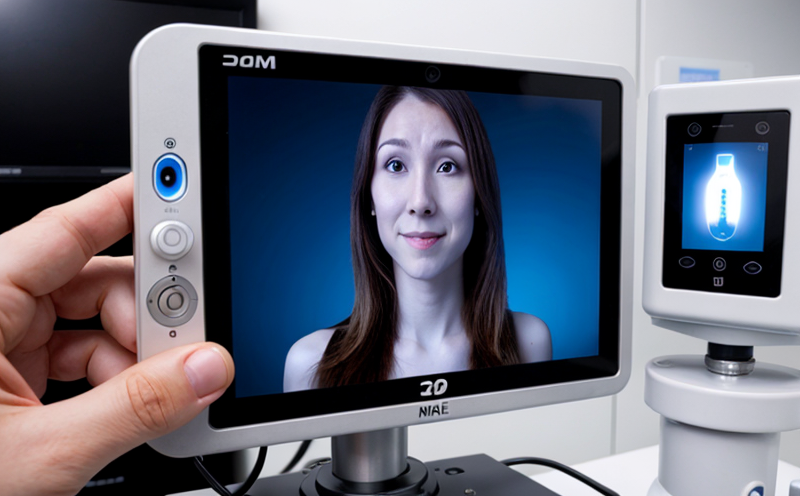Transportation Simulation Testing for Packaged Implants
The transportation of packaged implants presents a unique set of challenges that must be addressed to ensure patient safety and regulatory compliance. Transportation simulation testing (TST) is a critical step in the quality assurance process, designed to replicate real-world conditions during shipping and handling. This service is essential for medical device manufacturers who are committed to producing reliable and safe products.
Transportation simulation tests aim to identify potential risks associated with the packaging and transportation methods used by healthcare providers and patients. By subjecting packaged implants to a range of environmental stresses, including temperature fluctuations, mechanical shocks, and vibrations, this testing ensures that the integrity of the implant is maintained throughout its journey from manufacturer to patient.
The process begins with thorough specimen preparation, which involves selecting representative samples based on the expected distribution logistics. These specimens are then exposed to various simulated environments that mimic actual shipping conditions. Common tests include exposure to extreme temperatures (both high and low), drops at specified heights, and oscillations over time.
Following each test condition, detailed observations and measurements are taken to assess any changes in packaging integrity or implant functionality. Any deviations from the expected outcomes can indicate potential flaws that need addressing before finalizing the design and manufacturing process. Results of these tests provide critical insights into the durability and reliability of packaged implants under various stress scenarios.
Regulatory bodies worldwide, such as the U.S. Food and Drug Administration (FDA) and European Commission's Medical Devices Directive, emphasize the importance of transportation simulation testing in ensuring product safety and efficacy. Compliance with relevant standards like ISO 14971:2019 on risk management for medical devices further underscores the necessity of robust TST protocols.
Our state-of-the-art facilities employ advanced instrumentation capable of replicating a wide array of transport-related stresses, allowing for precise control over test parameters. This enables us to provide accurate and reliable results that meet stringent industry requirements. Our team of experienced engineers and scientists ensures that every aspect of the testing process adheres strictly to established guidelines, delivering consistent quality across all projects.
By leveraging our comprehensive transportation simulation testing services, medical device companies can gain valuable insight into how their products perform in real-world conditions. This information is invaluable for identifying areas where improvements are needed and ensuring compliance with local regulations and international standards.
In conclusion, transportation simulation testing plays a pivotal role in safeguarding patient health by guaranteeing the integrity of packaged implants during transit. Our commitment to excellence ensures that each test conducted meets rigorous quality benchmarks, providing peace of mind for both manufacturers and end-users alike.
Applied Standards
The transportation simulation testing (TST) service offered aligns closely with several internationally recognized standards aimed at ensuring the safety and efficacy of medical devices. Compliance with these guidelines is crucial not only to meet regulatory requirements but also to enhance trust among healthcare providers and patients.
- ISO 14971:2019: This standard provides a comprehensive framework for risk management throughout all stages of the lifecycle of medical devices, emphasizing the importance of assessing risks associated with packaging during transport.
- IEC 62362-5-8: Specifically addressing electrical insulation materials used in implantable medical devices, this part of IEC 62362 focuses on ensuring proper functioning under various environmental conditions encountered during transportation.
- ASTM F2091: This standard outlines procedures for simulating the effects of mechanical shocks and vibrations experienced by packages during shipment. It helps manufacturers understand how their products behave in these environments, enabling them to optimize packaging design accordingly.
- EN ISO 14685:2003: Providing requirements for sterilization processes used on medical devices, this standard ensures that packaged implants remain sterile throughout transportation while maintaining their sterility integrity post-sterilization.
By adhering to these standards, we ensure that our testing services are up-to-date with the latest industry practices and regulatory expectations. This commitment to compliance helps clients achieve successful product launches and maintain strong market positions.
Quality and Reliability Assurance
- Environmental Control: Our facility maintains controlled environments for temperature, humidity, and pressure, simulating various climatic conditions encountered during transportation. This ensures accurate representation of real-world scenarios without external variables affecting test results.
- Shock and Vibration Testing: Using specialized equipment capable of generating precise shock pulses and vibration frequencies, we can replicate the effects experienced by packaged implants in transit vehicles like trucks or airplanes.
- Impact Assessment: Post-test evaluations focus on detecting any alterations to packaging integrity or damage to the implant itself. Any findings are meticulously documented for review and analysis.
- Data Analysis: Utilizing sophisticated software tools, we analyze collected data points from each test iteration, comparing them against baseline standards set by applicable regulations.
The combination of these quality assurance measures guarantees consistent accuracy in our transportation simulation testing results. Each step is meticulously planned and executed to provide clients with reliable data they can trust for making informed decisions about their product designs and manufacturing processes.
Use Cases and Application Examples
The application of transportation simulation testing extends across various stages of a medical device's lifecycle, from initial design phases through post-market surveillance. Here are some specific use cases illustrating how this service adds value:
- New Product Development: Early-stage prototypes benefit greatly from early-stage TST to identify potential issues before full-scale production begins.
- Supply Chain Optimization: By understanding the impact of different packaging materials and shipping methods on product integrity, companies can optimize their supply chains for efficiency and cost savings.
- Regulatory Compliance: Proving adherence to relevant standards enhances credibility with regulatory authorities and increases chances of successful market approval.
- Post-Market Surveillance: Regular testing post-launch helps manufacturers stay ahead of potential problems, ensuring continuous product improvement even after initial release.
These real-world examples demonstrate the versatility of transportation simulation testing as a tool for enhancing product reliability and regulatory compliance. Incorporating these tests into your quality assurance strategy can lead to significant improvements in overall product performance and customer satisfaction.





